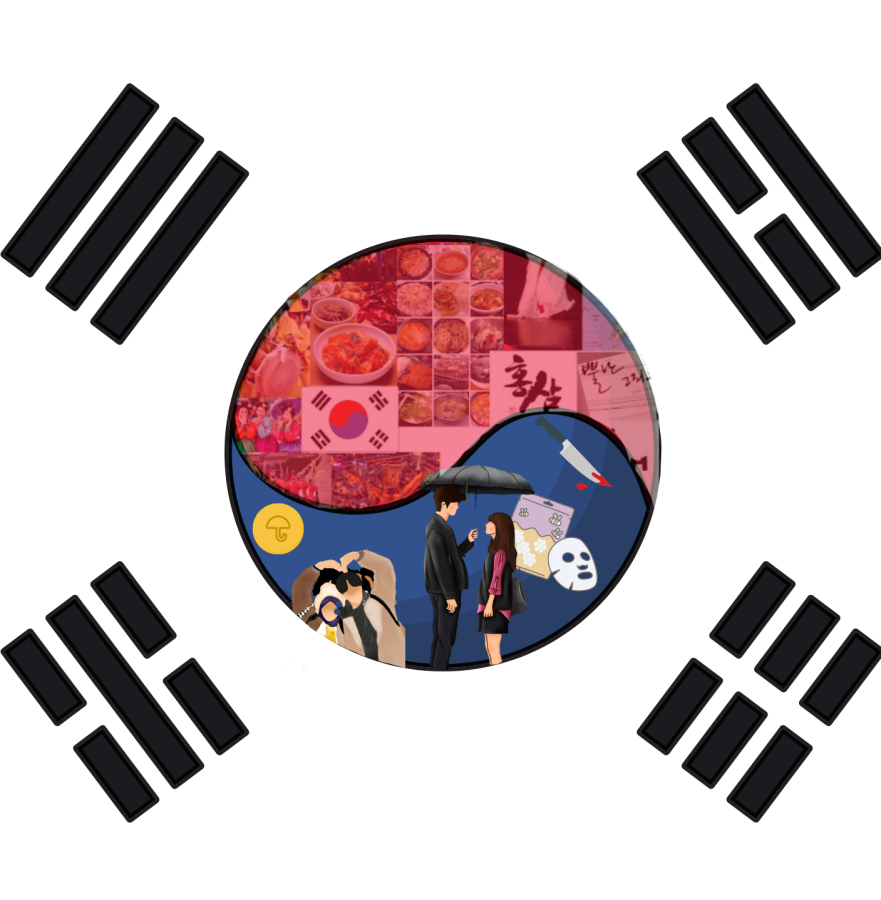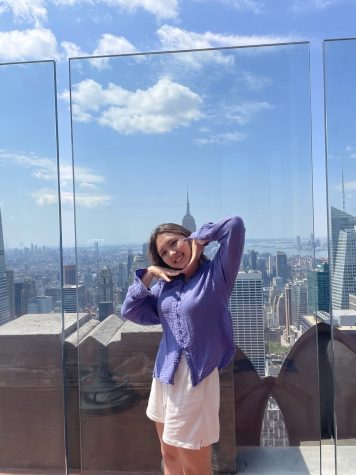Death, poverty and love affairs — just a few of the everyday struggles of your average South Korean depicted in popular movies and shows. But when viewers are peeled away from the screen and immersed in the authentic experience of South Korea, they will be sorely disappointed.
With the rise of Korean dramas, reality shows, food and music, Korean pop culture has exploded onto the scene in the United States. Although K-pop experienced a breakthrough success back in the early 2000s, K-Dramas are now rapidly becoming mainstream, with viewership rising by 200% between 2019 and 2021.
Senior Aarya Joshi was introduced to K-Dramas a few years ago and found that they piqued her interest. “There’s an originality and comfort to K-Dramas that isn’t there with other tv shows. They do such a great job with building their storylines by releasing new episodes each week, which is what makes them so addictive. Also, they represent a different part of the world which is just generally an exciting thing to learn about,” Joshi shared.
Just like all entertainment media, K-Dramas use specific plot and cinematic techniques to cater towards their audiences in a way that draws attention to their show. In the same way that telenovelas evolved with Latin American television and soap operas grew with the American film industry, K-Dramas have their own unique style and structure in congruence with their culture.
Although it’s easy to get sucked into the ensorcelling K-Drama whirlpool, this media can subconsciously perpetuate stereotypes and unrealistic expectations among international fans.
A name recognized by many K-Drama enthusiasts, the mega-hit survival Korean drama “Squid Game” launched into success with over 1.65 billion hours viewed, making it the most watched television series on Netflix of all time. The Korean movie “Parasite” also garnered international attention for its genre-bending plot and symbolic depiction of class struggles, becoming the first foreign film to win Best Picture across 92 years of Oscar history.
Though these films incurred immeasurable success and speak to the very real horror of rising household debt that many in the country face, it perpetuates the idea that South Korean life brims with financial issues and violent, extremist behavior. Audiences who are constantly exposed to themes of dark social commentary in Korean media can develop a narrow view of the country itself, only being exposed to the negative aspects of South Korea.
These issues resonated with junior Rupika Jai Ganesh. “‘Squid Game’ and ‘Parasite’ both provide great commentary on corruption and social inequality, but it might cause people to associate Korea with only these negative qualities. Although the commentary may be accurate, South Korea is much more than what’s shown in those two pieces of media,” Ganesh stated.
In addition to violence and hierarchy, the typical, slice-of-life romance dramas that South Korea is well-known for can also cultivate ideas based in cultural inaccuracy.
It’s uncommon for any K-Dramas to cast actors and actresses that deviate from Korean beauty standards, which could make viewers believe that everyone in South Korea is incredibly attractive, resulting in the fetishization of Korean men and women.
Korean men in K-Dramas are also characterized as charming, respectful gentlemen. However, many women who travel to Korea looking to enter the dating scene are hit with a painful reality check after encountering the men there. According to a South Korean political newsletter “The Blue Roof,” 58.6% of men in South Korea stated they strongly opposed feminism, but this statistic isn’t necessarily indicated by popular K-Dramas.
In fact, there has been a widespread phenomenon in which people will pack up their life and move to Korea to work as English teachers in hopes of living out the same fantasy they watch on their screen.
The term “Koreaboo” is given to people who retain an unhealthy obsession with Korean culture and people, often acting in ways that are cringey and socially unacceptable. A lot of this behavior is fueled by misconceptions and ignorance regarding Korean culture, lifestyles and etiquette, oftentimes a byproduct of Korean drama and film viewage.
Ganesh strongly opposes these kinds of people. “Koreaboos fetishize the country and view Korea through a rose-colored lens. All countries and its people have their flaws so to idolize a nation and treat it as some magical fairyland is weird and unsettling,” Ganesh expressed.
Dramas such as “Crash Landing on You,” “Boys Over Flowers” and “What’s Wrong with Secretary Kim?” are notorious for portraying unrealistic romantic relationships. Even more issues arise when people take these notions seriously and act upon them instead of appreciating the cheesy, impractical nature of K-Drama love stories.
As an overwhelming cultural force that shows no signs of ceasing, Korean entertainment accomplishes the task of delivering intense action sequences, swoon-worthy love scenarios and evocative performances. However, Korean movies and shows that have become popular worldwide expose two ends of a limited perspective in which people romanticize relationships in Korea or associate South Korea with only gruesome class conflict.
Although there’s nothing wrong with enjoying the K-Drama experience, it’s important for Western audiences to be aware of the fact that Korean movies and dramas are not representative of the whole of South Korea.









